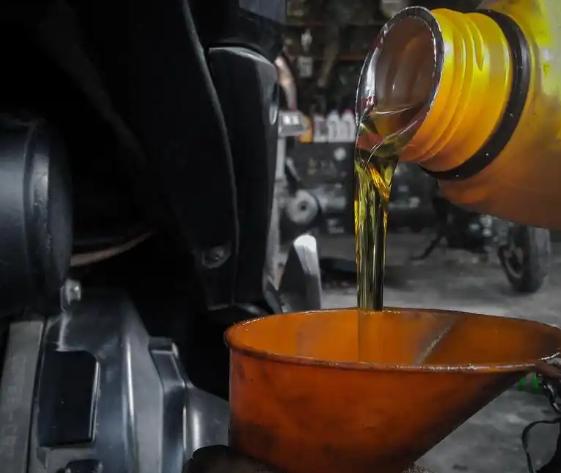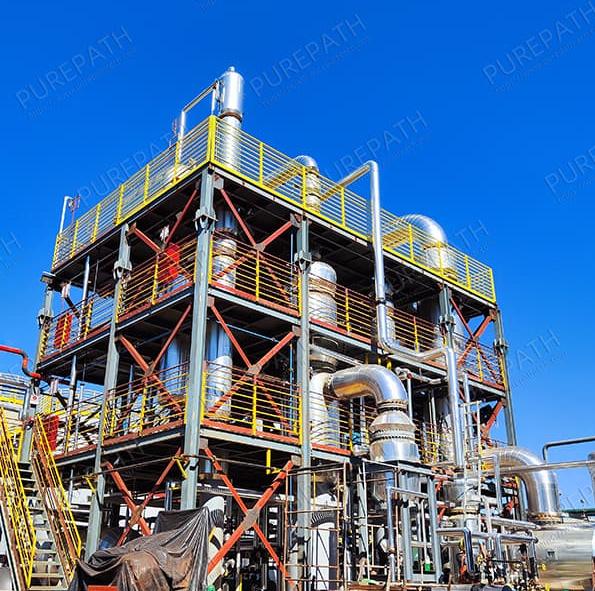How the Used Motor Oil Recycling Industry is Boosting Local Economies
The used motor oil recycling industry is not only an important component of environmental sustainability, but also an important factor in promoting local economic development. As the demand for efficient waste management continues to grow, recycling waste oil has become an important aspect of achieving ecological and economic goals. This article explores how this emerging industry can promote local prosperity by creating jobs, increasing income, promoting local business growth, and sustainable development.
The Growing Demand for Motor Oil Recycling

In recent years, the demand for motor oil recycling has grown significantly, driven by increasing environmental awareness and the necessity for sustainable waste management. Used motor oil, if mishandled, can be hazardous to ecosystems, polluting soil and water. However, its recyclability offers a solution that aligns with the principles of a circular economy. Several factors fuel this growing demand.
- Stricter environmental regulations have made proper disposal and recycling of used motor oil a legal obligation in many regions.
- Simultaneously, businesses and consumers alike recognize recycled oil’s value as a cost-effective alternative to newly refined oil. Advanced technologies allow used motor oil to be re-refined into high-quality products, enhancing its viability and market appeal.
- Additionally, public and private initiatives are spreading awareness about the importance of recycling motor oil. Programs that provide convenient collection points and incentives for recycling have made it easier for individuals and businesses to participate, ensuring a steady supply of used oil for processing.
As these trends continue to develop, the motor oil recycling industry is set to become an essential component of sustainable resource management.
Economic Benefits of Motor Oil Recycling
The economic advantages of motor oil recycling are multifaceted, directly impacting local economies through job creation, revenue generation, and business growth. This sector transforms waste management into an engine of economic development while promoting environmental responsibility.
Job Creation

The motor oil recycling industry is a key driver of employment in many communities. Recycling operations involve various stages, from the collection and transportation of used oil to its processing and refinement. This creates diverse job opportunities in fields such as waste management, engineering, environmental science, and logistics.
In many regions, recycling facilities are established in areas with limited economic opportunities, helping revitalize local economies by providing stable jobs. Additionally, the demand for skilled workers, such as refinery technicians and environmental compliance officers, further contributes to workforce development.
Revenue Generation
Recycling motor oil is a highly profitable industry, with recycled oil serving as a valuable resource for various applications such as industrial lubrication, and energy production, and as a base for manufacturing new motor oils. Consequently, businesses in the recycling sector drive substantial revenue, bolstering local and regional economies.
The sale of refined oil and its by-products benefits private enterprises while also generating tax revenue that local governments can reinvest in community services and infrastructure. This economic cycle strengthens regional stability, showcasing that waste recycling is both an environmentally sustainable and financially rewarding endeavor.
Local Business Growth
Motor oil recycling facilities serve as catalysts for the growth of nearby businesses. Equipment suppliers, transportation companies, and waste management services all thrive on the heightened demand driven by recycling operations. This interconnected network of businesses fosters a robust local economy, spurring entrepreneurial activity and reinforcing the overall business ecosystem.
Additionally, the presence of a recycling center often draws industries that depend on recycled materials, further stimulating economic growth. Local suppliers, including those offering additives and chemicals for oil processing, also see increased demand, creating a mutually supportive and prosperous environment.
Environmental Benefits and Long-Term Sustainability

The used motor oil recycling industry offers significant environmental advantages, aligning economic growth with ecological preservation. By reducing waste and promoting sustainable practices, it helps address critical environmental challenges. The key benefits include:
- Reduction in Pollution: Recycling prevents used motor oil from being improperly discarded, which can lead to soil and water contamination. A single gallon of improperly disposed motor oil can pollute up to one million gallons of freshwater.
- Lower Carbon Footprint: Refining used oil into reusable products requires less energy than producing new oil, significantly reducing greenhouse gas emissions. This contributes to global efforts to combat climate change.
- Resource Conservation: By transforming waste oil into valuable products, the industry reduces dependence on virgin oil extraction. This conserves natural resources and lowers the environmental impact of oil drilling and refining.
- Eco-Friendly Waste Management: Modern recycling practices minimize waste during the refining process, ensuring that nearly every part of the collected used oil is repurposed, from the oil itself to its byproducts.
By tackling these issues, the motor oil recycling industry not only mitigates environmental harm but also establishes a sustainable foundation for future resource management.
Infrastructure Development of Used Motor Oil Recycling

Expanding infrastructure for used motor oil recycling is crucial to enable the efficient collection, processing, and reuse of motor oil. Advancements in this area are driving economic growth in local communities while improving the efficiency of recycling operations. The key elements of this infrastructure development include:
- State-of-the-Art Recycling Facilities: Modern recycling plants are equipped with advanced technology to purify, filter, and refine used motor oil, making it suitable for reuse. These facilities ensure that recycling meets high environmental and quality standards.
- Improved Collection Systems: Local governments and private companies are establishing more accessible collection points, such as recycling centers and drop-off locations, ensuring that used motor oil is collected efficiently from households, automotive shops, and industrial sites.
- Transportation Networks: Investment in better logistics and transportation infrastructure ensures the safe and cost-effective movement of used oil to recycling plants. This includes specialized vehicles designed to handle and transport hazardous waste safely.
- Public Awareness Campaigns: Efforts to educate the public about the importance of motor oil recycling and how to properly dispose of used oil have led to increased participation, further supporting the success of infrastructure projects.
These infrastructure developments not only improve the efficiency of recycling but also contribute to the long-term sustainability of the industry, creating more job opportunities and enhancing the local economy.
The used motor oil recycling industry provides significant economic and environmental benefits. It creates jobs, generates revenue, and supports local businesses while promoting sustainability. With improved infrastructure and growing awareness, the industry is making recycling more efficient and accessible. By reducing waste and conserving resources, motor oil recycling helps foster long-term economic growth and environmental protection, benefiting both local communities and the planet.







